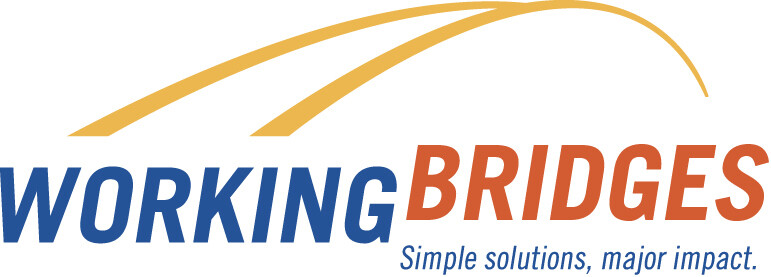An innovative community-based solution for Vermont’s workforce challenge

This commentary is by Connie Beal, director of United Way of Northwest Vermont’s Working Bridges Initiative, an innovative workforce stability program that partners with employers to increase worker retention and productivity. She lives in St. Albans.
Hiring and keeping good employees is harder than ever. Vermont has a record-high 26,000 vacant jobs and employers are being forced to think differently about how to attract workers and how to make sure their employees have the resources they need to show up and do their best work.
Recent news stories have explored how Vermont employers are getting creative about recruitment and retention, with some even building or arranging housing for potential employees or providing on-site child care.
While housing and child care are important pieces of the puzzle, there is a lot more to consider when we think about the systemic barriers and access issues that keep Vermonters from achieving and maintaining stable employment.
United Way’s Working Bridges Initiative supports employees and their employers in a holistic, relationship-based way by helping workers access a wide variety of community resources to overcome life challenges impacting their ability to work.
Working Bridges is grounded in partnerships and creating trusting relationships with employers, employees and community partners. Resource coordinators serve as “bridges” to help workers access community resources, creating greater stability for both the diverse employees they meet with and the employers they support.
I want to share a story about one employee, whom I will call “Lucy” for anonymity. Lucy’s story demonstrates the multi-layered and interconnected resources people need in order to fully participate and succeed in the workforce.
English is not Lucy’s first language and that has made navigating systems and accessing community resources challenging. Lucy’s employer, a Vermont manufacturing company, partners with Working Bridges to offer employees free, confidential on-site coaching and resource coordination to help them navigate life challenges and essential resources such as housing, transportation, child care, health care, financial goals and more.
Just over a year ago, Lucy’s Working Bridges resource coordinator helped her family achieve their dream of buying a home with support from Champlain Housing Trust. Within six months, however, Lucy was forced to leave that home after it became an abusive environment.
Lucy and her young child spent a couple of nights in motels and temporarily lived in a location not meant for housing while her Working Bridges resource coordinator collaborated with a local housing agency to help her secure family shelter space. Lucy then received support to apply for and receive a Section 8 housing voucher — a seven-month process. Through a partnership Working Bridges has with Goodwill, Lucy will have access to vouchers to buy furniture and kitchen supplies for her family’s new home.
While stable, safe housing is essential, it isn’t the only obstacle the employees we work with must navigate. Before leaving her marriage, Lucy accrued a $3,000 medical bill from stress-related health issues. Her Working Bridges resource coordinator helped Lucy apply for financial assistance from the hospital and ultimately her full medical bill was forgiven.
Reliable transportation is another major barrier for many Vermonters. When Lucy’s car was totaled, her Working Bridges resource coordinator helped her overcome language barriers and work with her insurance company to get a rental car and have her car fixed.
Currently, Lucy is working with her resource coordinator on school enrollment in a new district and summer child care plans for when school is closed. Accessing legal support for divorce proceedings is also ongoing.
Lucy is a reliable, dedicated and highly valued employee. Without support and access to community resources, any one of these setbacks might have led to Lucy being forced to leave or lose her job. Having a supportive employer and access to resource coordination and coaching through Working Bridges made it possible for Lucy to keep showing up at work while also taking care of herself and her family.
We must acknowledge that not everyone in our community has access to the resources they need to thrive. To create a more stable workforce in Vermont, we need to think about access to resources more expansively, with an equity lens. What does access to resources look like if English is not your first language? What are the hidden rules and barriers in our community that help or hinder stability? What happens, for example, when a person’s past involving incarceration or substance misuse exacerbates their ability to access housing?
There are many drivers of Vermont’s workforce shortage but scarcity of essential resources and systemic barriers to accessing those resources underlie them all.
Through United Way’s Working Bridges, I’ve witnessed how business, government, community and philanthropy can come together to share strengths and innovate local solutions that lead to greater stability for workers and employers. No one can solve these challenges alone, but I believe through partnership, collaboration, systems change, and centering the diverse voices and experiences of Vermont’s workers, we can work toward a community where everyone thrives.